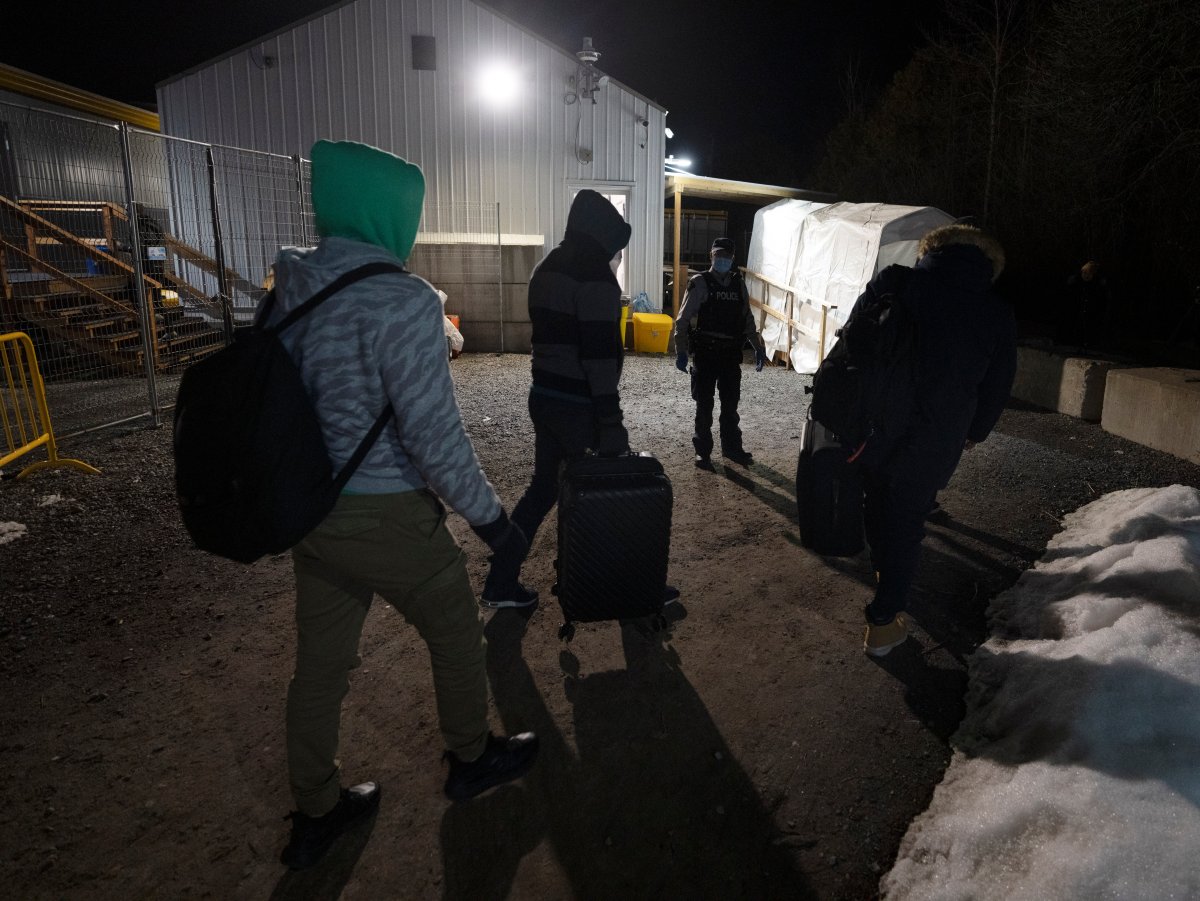The closure of the Roxham Road crossing at the Canada-U.S. border was “rushed” and will only further endanger the lives of asylum seekers, immigration advocates say.

The border rule change went into effect at 12:01 a.m. Eastern on Saturday, closing the small and unofficial crossing separating Quebec and New York, where tens of thousands of asylum seekers have entered Canada irregularly in the past few years.
The deal was announced just hours earlier on Friday during U.S. President Joe Biden’s visit to Ottawa and was described as a “supplement” to the 2004 treaty known as the Safe Third Country Agreement.
Under the treaty, both Canada and the U.S. recognize each other as “safe” countries for asylum claimants, meaning individuals must make their claim at the first official border crossing they come to in either country. But that only applies to official crossing points, and crossing at unofficial points has become a popular loophole over recent years.
As of Saturday, the treaty now applies from coast to coast, meaning loopholes like Roxham Road are no more.
“It’s short-sighted, both for Canada and for refugees,” immigration lawyer Maureen Silcoff told Global News. “The solution would have been to end the agreement and allow people to cross at official ports of entry and seek asylum, allowing provinces across the country to receive them.”
Silcoff says closing the popular crossing near Hemmingford, Qc., won’t actually stop the influx of people who will try and get into Canada, it will only force them to do it more dangerously, and the people that enter will go undetected.
“Refugees should never be politicized. People will potentially die,” she said referencing past deaths of those who tried crossing in dangerous conditions.
Silcoff says these vulnerable people and families who are fleeing dangerous countries will end up with American border officials after being turned away, and then end up in a U.S. jail or on a plane deported back to their country of origin, where they will likely face renewed harm.
“Refugees should never be politicized. People will potentially die.”
Past tracking of people who have been turned away at the Canadian border has shown that those are the two main outcomes they faced, according to Silcoff.
“And Canada knows that. I’m concerned that all of this will happen again. The human cost is extremely high.”
Frantz André, an advocate for asylum seekers with the Action Committee for People without Status says the change was rushed, inhumane and didn’t give migrants who had already entered the U.S. with the intent of crossing into Canada enough of a warning about the closure.
New York State Representative Billy Jones told Global News on Saturday that “a lot of the people coming up here don’t have Twitter, they don’t even know this happened.”
He said the sudden announcement made just hours prior could potentially create a humanitarian issue for border communities. “A lot of people will be turned away and then stuck here without a plan.”
'We did our part,' Legault says
The news was however well-received by Quebec Premier François Legault, who called it a “beautiful victory” at a press conference on Friday.
Closing Roxham is something Legault has been consistently asking the federal government to do. The premier has expressed concerns to Ottawa over the number of people crossing, saying Quebec had reached its welcoming capacity.
The province provided housing and other necessities for asylum seekers while their requests were processed, but Legault had argued that resources were stretched thin.
As part of the new deal, Canada committed to accepting 15,000 immigrants from the Western Hemisphere over the next year, but the premier insists Quebec has already done its share.
“Given the great number (of asylum seekers) we received last year, I think we did our part,” Legault said. “I think there’s some catching up to do so that there are more in other provinces.”
— With files from The Canadian Press, Sean Boynton and Gloria Henriquez, Global News
- Life in the forest: How Stanley Park’s longest resident survived a changing landscape
- ‘Love at first sight’: Snow leopard at Toronto Zoo pregnant for 1st time
- Carbon rebate labelling in bank deposits fuelling confusion, minister says
- Buzz kill? Gen Z less interested in coffee than older Canadians, survey shows




















Comments